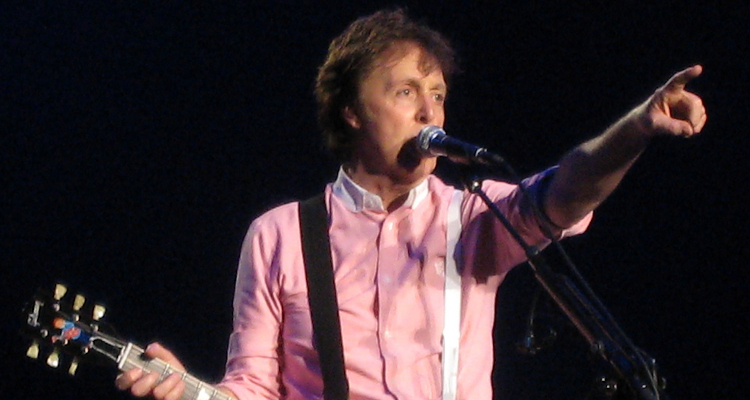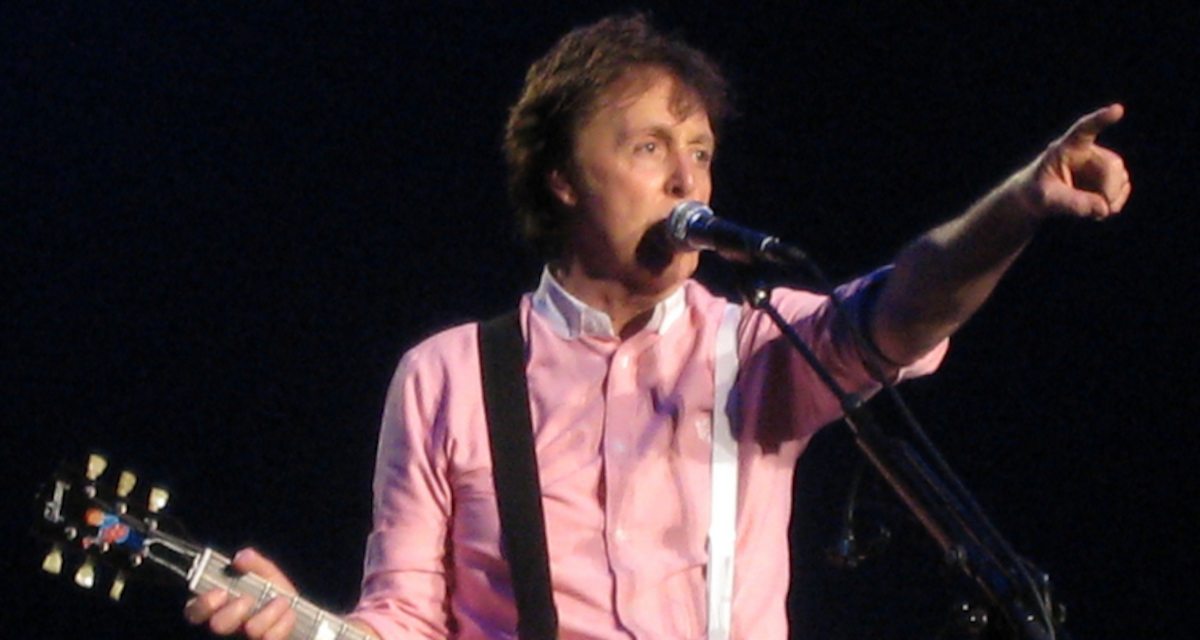
Paul McCartney performing in the Netherlands in 2009. Photo Credit: Eddie Janssens
In a recent roundtable discussion, two-time Rock and Roll Hall of Fame inductee Paul McCartney said that artists’ streaming payments should increase, besides expressing the opinion that it’s harder for creators to stay financially afloat in the contemporary music industry.
The 18-time Grammy winner (and 79-time nominee) Paul McCartney made these and other interesting remarks during a half-hour episode of a BBC Radio 4 program entitled The Price of Song.
Singer-songwriter Nadine Shah, who previously revealed that she has trouble making rent despite boasting over 100,000 monthly listeners on Spotify, and Hipgnosis founder Merck Mercuriadis also participated in the installment, which explored both the economic realities of streaming and the recent influx of multimillion-dollar catalog sales.
“I think it’s harder for artists now, unfortunately. It’s such a small percentage,” Paul McCartney said of the streaming royalties that artists receive, despite the fact that streaming accounted for an all-time-high portion of total recorded music earnings in the U.S. and in the U.K. during 2020.
“And what they’ll tell you is, ‘Yeah, but if you have millions of that small percentage, you’re alright,’” continued the 78-year-old. “After a while, if you’re lucky, you get some success, and then it can be your art rather than you just having to pay the bills.”
“But you’d like to see a bigger proportion of the royalties going back to the artists?” asked interviewer John Wilson.
“Well yeah,” replied McCartney, whose solo works generate north of 9.7 million monthly Spotify streams. “I’m an artist, you know, yeah. The truth of it is, John, is that the artists are the ones who make the music.
“You know, The Beatles sang and played all those records. An ordinary person would just think, ‘Well, so, you get all the money.’ Like, you know, you went to work, you did all the job, you get all the money. But as you know, it’s not the way,” he finished.
The British government in October unveiled a formal investigation into streaming royalties, and the probe aims specifically to determine “whether the business models used by major streaming platforms are fair to the writers and performers who provide the material,” according to DCMS Committee Chair and MP for Solihull Julian Knight.
Since then, UK-based acts including The Charlatans’ Tim Burgess, Led Zeppelin founder and guitarist Jimmy Page, and “Cars” singer, songwriter, and producer Gary Numan have publicly taken aim at streaming royalties – or the lack thereof. And earlier this week, SoundCloud officially introduced “fan-powered royalties,” or direct-to-artist compensation based upon actual user engagement.
In spite of the low per-stream royalty rates paid by leading DSPs, however, artists including Bob Dylan, Lindsey Buckingham, and The Killers have in recent months opted to cash out of their publishing catalogs in exchange for (substantial) once-off payments. Given that Paul McCartney previously litigated for his publishing stakes in a number of tracks, the sit down also covered his thoughts on the catalog-sale uptick and the chances that he’ll part with his own music IP.
“I’m very proud to have them. Me and John did get a bit ripped off in the early days. We signed a little contract – we had no idea what contracts were even. I remember just saying to this bloke, ‘Does this look okay?’ And he goes, ‘Yeah!’ So we signed it. It turned out later he was our lawyer. We didn’t even know he was our lawyer.
“I started to get my own songs, after the Beatles, and some of the songs from the Beatles have started to come back. I feel like I’m looking after them, so I’m not keen to sell them,” concluded the Liverpool native.

